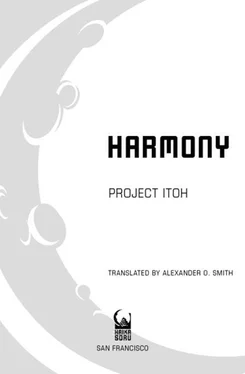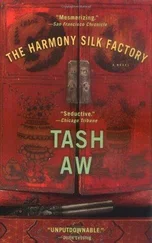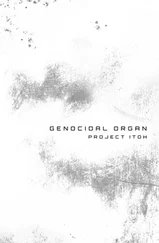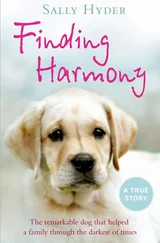Itoh, Project - Harmony
Здесь есть возможность читать онлайн «Itoh, Project - Harmony» весь текст электронной книги совершенно бесплатно (целиком полную версию без сокращений). В некоторых случаях можно слушать аудио, скачать через торрент в формате fb2 и присутствует краткое содержание. Год выпуска: 2010, Издательство: Haikasoru/VIZ Media, Жанр: Старинная литература, на английском языке. Описание произведения, (предисловие) а так же отзывы посетителей доступны на портале библиотеки ЛибКат.
- Название:Harmony
- Автор:
- Издательство:Haikasoru/VIZ Media
- Жанр:
- Год:2010
- ISBN:нет данных
- Рейтинг книги:4.33 / 5. Голосов: 3
-
Избранное:Добавить в избранное
- Отзывы:
-
Ваша оценка:
- 80
- 1
- 2
- 3
- 4
- 5
Harmony: краткое содержание, описание и аннотация
Предлагаем к чтению аннотацию, описание, краткое содержание или предисловие (зависит от того, что написал сам автор книги «Harmony»). Если вы не нашли необходимую информацию о книге — напишите в комментариях, мы постараемся отыскать её.
Harmony — читать онлайн бесплатно полную книгу (весь текст) целиком
Ниже представлен текст книги, разбитый по страницам. Система сохранения места последней прочитанной страницы, позволяет с удобством читать онлайн бесплатно книгу «Harmony», без необходимости каждый раз заново искать на чём Вы остановились. Поставьте закладку, и сможете в любой момент перейти на страницу, на которой закончили чтение.
Интервал:
Закладка:
“Actually, I wanted to talk to you about your daughter before her death.”
The mother’s eyes dropped like she was scanning the depths of her memory, looking for something she’d lost a long time ago. “Well, this is hardly a pleasant story, but when my daughter was a child, she often tried to take her own life. She slashed her wrists on several occasions.”
“I’m aware of that too. It’s in our records,” I lied.
Reiko, I was there with her. I would have followed her all the way down to hell. “I’m also aware,” I said, “that she tried to kill herself by eating too much, and then by not eating at all. As though she were trying to damage her own precious body precisely because it was so precious.”
From the woman’s expression I knew I had hit the mark. And it was true. We had tried to die because they told us our bodies were a public resource, because they kept telling us our bodies didn’t belong to us.
“We loved her, truly we did. We wanted her to grow up healthy, to make a contribution to society. But we failed. She was always cleverer than we were by far, and stronger, and yet, at the same time, fragile—a delicate little girl.”
“So what happened?”
“It’s kind of a long story. Maybe you should come inside,” Reiko said, drawing away from the door. She led me into an extremely average living room, motioned for me to sit on a sofa, and disappeared into the kitchen, asking as she went if I liked the smell of lavender. I made some noncommittal grunts, not really having an opinion on the subject.
“Here,” she said upon her return and handed me a glass of water. I took it. It did smell like lavender. This was a recent trend—using your medcare unit to add scents to drinking water. It probably had something to do with the whole aromatherapy concept that smells could help generate a feeling of calm.
A good 80 percent of admedistrative society was this: pastel pink buildings and lavender scents.
“So, you tried to help her, and what happened?” I asked Reiko as she sat down across from me. The woman who had once been Miach’s mother—I suppose that technically she still was—turned her eyes toward the twisted branches of a palmetto growing outside the window.
“Miach was adopted. Maybe you remember the admedistration campaign to adopt war orphans to counterbalance the problem of our aging society? There were those posters: ‘The best resource of all is our youth.’ We had tried to have a child of our own, but I was told by the doctor that my body couldn’t produce children. When my husband and I imagined the long lives ahead of us, thanks to WatchMe, just years of gradually growing old, it seemed so…flat, so homogeneous. How horrible, we thought, and how sad. Maybe you remember the conflict in Chechnya?”
I told her it was still going on.
“Is that so? Well, that’s where Miach was from. She was the child of a minority group there, a very small community, the admedistration official told us. Their facial features resemble ours quite a lot, and she was only eight years old when we got her, so they told us she wouldn’t have any problem getting used to our family and our way of life. All of which was very good news to us. They did mention she’d seen some pretty rough times, but that she’d gone through heavy therapy for her trauma already, and all we needed to do was provide a warm, loving home for her.”
Miach, a war orphan? I was sure she’d never said anything about that. And neither I nor Cian ever doubted she was Japanese. She spoke fluently, and though she’d had a certain exotic beauty to her features, they fit well within the margins of Japanese variation.
In the course of my work I’d had several opportunities to meet child soldiers—one of the many scenes AI social filtering kept out of the admedistration media due to a risk of trauma to viewers.
I remembered them in one of the many African countries I visited, carrying the customary AK-47s and a few M-4s from America. Children. Their country was sluggishly transitioning from an antiquated government to an admedistrative system, but there were still armed factions here and there, and the embers of conflict still smoldered.
We were at the negotiation table across from a twelve-year-old boy. A boy who happened to be the leader of an armed force 140 strong—I won’t call them “men” because they were boys too. His boys’ eyes were blank as they looked over the firepower we were offering them in exchange for their cigarettes and drugs.
Chechnya I’d never been to, but I’d heard plenty of rumors.According to the Helix inspector for the region, the military goods dealer on contract with the Geneva Convention forces there had made a mess of the place with various abuses of the law, only serving to increase the small republic’s hatred and distrust of its larger neighbors.
And Miach had been there, in the middle of that tragedy. I knew the crimes that children experienced in war zones. Now I considered the possibility that Miach had seen or experienced many of them herself. For the first time I had learned that Miach was carrying something inside her, a darkness she hadn’t told anyone—not even her coconspirators. The fact that she had come from such a hell on earth made her hatred of the admedistrative world—which must have seemed heavenly by comparison—all the more impressive.
“At first she was fine. Everything was normal. But when she got into middle school, it was like she became someone else, possessed almost. She started trying to kill herself. I told you how she attempted to cut her wrists. Well, eventually she found a way to hurt herself without anyone knowing. She came by these drugs—I don’t know where—that stopped the body’s absorption of nutrition from food. She and some of her friends made a pact that they would kill themselves that way.”
I was one of those friends.
I was that little girl who failed thirteen years ago and hadn’t forgotten it for a moment since.
I and Miach and Cian had taken those pills together in order to strike a blow against the world that had tried to suffocate us by making us too important to be lost. We wanted to hurt the world, and we were willing to hurt ourselves to do it. Well, some of us, at least.
Of course, I said nothing. All I had to do at that point to keep her talking was nod at the appropriate times and occasionally ask a suitably leading question.
“Of course, even when they took the drugs, it still looked like they were eating well. I didn’t notice anything. Nor did the parents of the other girls. By the time I did realize something was wrong, Miach had already passed the point of no return.”
The woman’s eyes fell to her lavender-scented water. “You must think I’m a terrible mother, not to realize my own child was dying before my very eyes.”
“No, not at all—”
“No, it’s all right. It’s the truth, after all.” She chewed her lip.
“But, I ask you, what can a parent do when their child does something we can’t even imagine?” Tears glistened in Reiko Mihie’s eyes. “I know that sounds like an excuse, but we really did everything we could to be good parents to her. We went to get advice from the morality center and asked for help from our admedistrative community.The community people were very kind and held several sessions on our behalf.”
Was that all you could think of? I thought, cringing inwardly. It was the usual protocol: if a kid had problems, smother them with goodwill until they no longer thought for themselves, or thought anything at all.
Miach didn’t have to do much to find herself well beyond the limitations of this woman’s small, frail imagination.
“Every time we tried a new approach, Miach seemed to just slip through our hands like sand, drifting off in some other direction. The pain she was suffering was beyond our ability—no, beyond the whole admedistration’s ability to comprehend. She was in pain for reasons we couldn’t even imagine, screaming in perfect silence.”
Читать дальшеИнтервал:
Закладка:
Похожие книги на «Harmony»
Представляем Вашему вниманию похожие книги на «Harmony» списком для выбора. Мы отобрали схожую по названию и смыслу литературу в надежде предоставить читателям больше вариантов отыскать новые, интересные, ещё непрочитанные произведения.
Обсуждение, отзывы о книге «Harmony» и просто собственные мнения читателей. Оставьте ваши комментарии, напишите, что Вы думаете о произведении, его смысле или главных героях. Укажите что конкретно понравилось, а что нет, и почему Вы так считаете.












